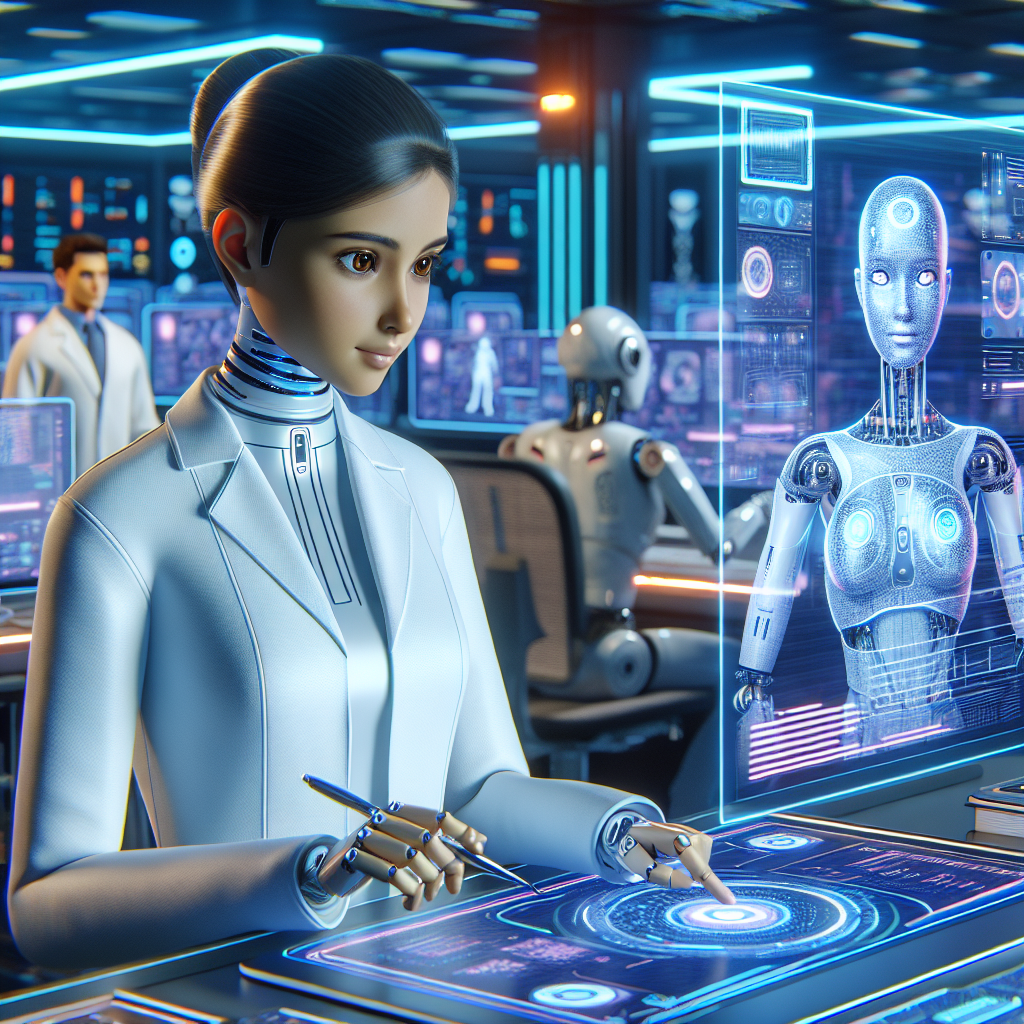
Introduction
In today's digital age, Online AI Assistants have become an integral part of our daily lives. These virtual assistants powered by artificial intelligence have revolutionized the way we interact with technology, making tasks simpler and more efficient. From scheduling appointments to answering inquiries, AI assistants have the ability to streamline processes and enhance productivity.
Definition of AI Assistant Online
An AI Assistant Online is a virtual assistant powered by artificial intelligence that can perform tasks and provide information based on the user's input. These assistants utilize natural language processing and machine learning algorithms to understand and respond to user queries in real-time. They can assist with a wide range of tasks, including scheduling meetings, providing information, and even making recommendations.
Benefits of AI Assistant ChatGPT
One of the most popular AI assistants available is ChatGPT, which is developed by OpenAI. ChatGPT leverages a large language model to generate human-like responses to user queries. The benefits of using ChatGPT include faster response times, personalized interactions, and the ability to handle multiple tasks simultaneously. Additionally, ChatGPT can continuously learn and adapt to user preferences, making interactions more intuitive and effective.
How AI Assistant Works
AI assistants work by processing user input through natural language understanding and machine learning algorithms. These algorithms analyze the input to determine the user's intent and generate a relevant response. The assistants can access vast amounts of data to provide accurate information and recommendations. As users interact more with the AI assistant, it learns and improves its responses over time, creating a more personalized experience.
Popular AI Assistant Chatbots
Some of the popular AI assistant chatbots include Google Assistant, Siri, Alexa, and Cortana. These chatbots are integrated into various devices such as smartphones, smart speakers, and smart home devices. They can perform tasks such as setting reminders, playing music, providing weather updates, and controlling smart home devices. These chatbots have become an essential part of daily life for many users, providing convenience and efficiency.
Uses of AI Assistant
AI assistants have a wide range of applications across various industries. They can be used for customer service, data analysis, virtual assistance, and more. In businesses, AI assistants can automate repetitive tasks, improve customer service, and enhance decision-making. In healthcare, AI assistants can help with patient care, diagnosis, and treatment recommendations. The possibilities are endless, and AI assistants continue to evolve to meet the needs of different sectors.
Pros and Cons of AI Assistant
Like any technology, AI assistants come with their own set of pros and cons. The advantages of AI assistants include increased productivity, personalized interactions, and enhanced efficiency. However, some challenges include data privacy concerns, potential job displacement, and the limitations of AI in complex decision-making scenarios. It is essential to weigh these factors when considering implementing AI assistants in your personal or professional life.
AI Assistant vs Human Assistants
AI assistants are often compared to human assistants in terms of efficiency, accuracy, and cost-effectiveness. While AI assistants can handle repetitive tasks quickly and accurately, they may lack the emotional intelligence and critical thinking skills of human assistants. Human assistants can provide a higher level of personalization and adaptability to complex situations. Ultimately, the choice between AI and human assistants depends on the specific task requirements and preferences of the user.
Future of AI Assistant
The future of AI assistants is promising, with continuous advancements in artificial intelligence and machine learning. AI assistants will become more sophisticated, offering personalized interactions, predictive capabilities, and seamless integration with other technologies. As AI technology continues to evolve, AI assistants will play a more significant role in shaping how we interact with digital devices and services.
Conclusion
In conclusion, online AI assistants have unlocked a new level of convenience and efficiency in our daily lives. From simplifying tasks to providing personalized recommendations, AI assistants have become indispensable tools for many users. As technology continues to evolve, AI assistants will play a crucial role in shaping the future of digital interactions. It is essential to embrace the power of AI assistants and leverage their capabilities to enhance productivity and streamline processes.
